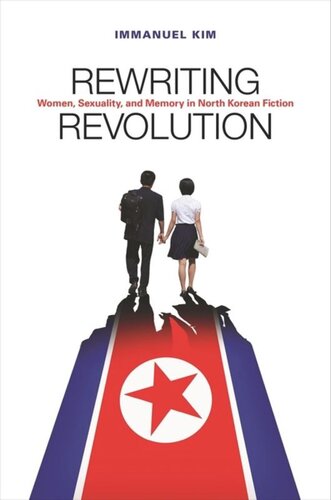

Most ebook files are in PDF format, so you can easily read them using various software such as Foxit Reader or directly on the Google Chrome browser.
Some ebook files are released by publishers in other formats such as .awz, .mobi, .epub, .fb2, etc. You may need to install specific software to read these formats on mobile/PC, such as Calibre.
Please read the tutorial at this link: https://ebookbell.com/faq
We offer FREE conversion to the popular formats you request; however, this may take some time. Therefore, right after payment, please email us, and we will try to provide the service as quickly as possible.
For some exceptional file formats or broken links (if any), please refrain from opening any disputes. Instead, email us first, and we will try to assist within a maximum of 6 hours.
EbookBell Team

4.3
38 reviewsNorth Korea, the Democratic People’s Republic of Korea (DPRK), is firmly fixed in the Western imagination as a barbaric vestige of the Cold War, a “rogue” nation that refuses to abide by international norms. It is seen as belligerent and oppressive, a poor nation bent on depriving its citizens of their basic human rights and expanding its nuclear weapons program at the expense of a faltering economy. Even the North’s literary output is stigmatized and dismissed as mere propaganda literature praising the Great Leader.
Immanuel Kim’s book confronts these stereotypes, offering a more complex portrayal of literature in the North based on writings from the 1960s to the present. The state, seeking to “write revolution,” prescribes grand narratives populated with characters motivated by their political commitments to the leader, the Party, the nation, and the collective. While acknowledging these qualities, Kim argues for deeper readings. In some novels and stories, he finds, the path to becoming a revolutionary hero or heroine is no longer a simple matter of formulaic plot progression; instead it is challenged, disrupted, and questioned by individual desires, decisions, doubts, and imaginations. Fiction in the 1980s in particular exhibits refreshing story lines and deeper character development along with creative approaches to delineating women, sexuality, and the family. These changes are so striking that they have ushered in what Kim calls a Golden Age of North Korean fiction.
Rewriting Revolution charts the insightful literary frontiers that critically portray individuals negotiating their political and sexual identities in a revolutionary state. In this fresh and thought-provoking analysis of North Korean fiction, Kim looks past the ostensible state propaganda to explore the dynamic literary world where individuals with human emotions reside. His book fills a major lacuna and will be of interest to literary scholars and historians of East Asia, as well as to scholars of global and comparative studies in socialist countries.